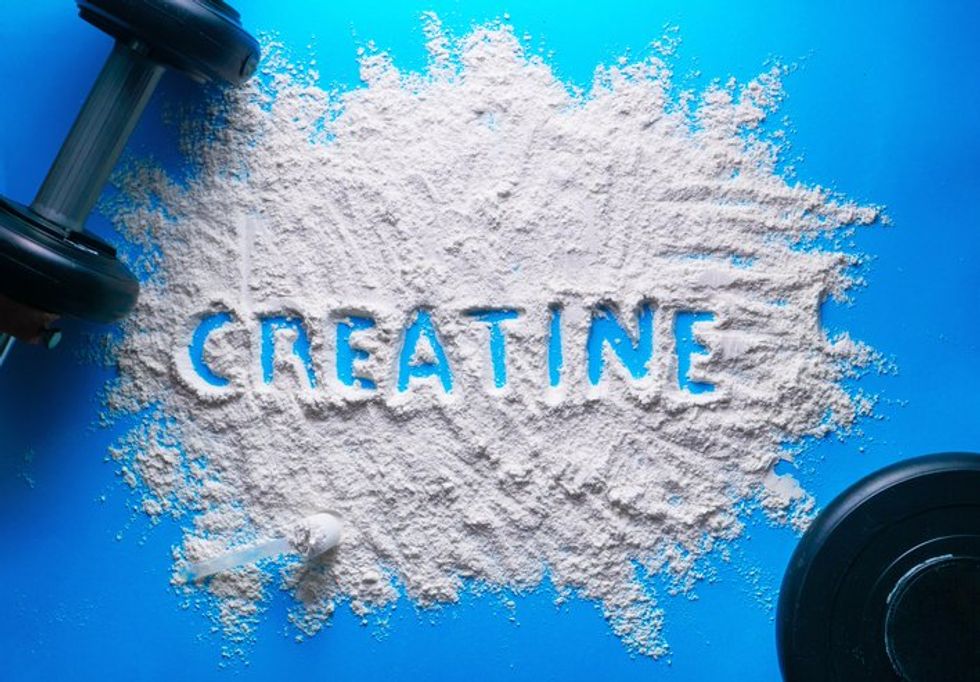6 Medications That Don’t Mix Well with Vitamin D
- Vitamin D is a popular supplement, but it can have harmful interactions with various medications.
- High blood pressure and seizure medications are just some of the drugs that may not mix well.
- Talk with your pharmacist about any medications you’re taking that may interact with vitamin D.
We need vitamin D for our immune health, building and maintaining bone density and even reducing inflammation. But it’s challenging to eat enough vitamin D through food alone. And even though it’s synthesized in the skin via sun exposure, it’s often not enough. Perhaps that’s why about a third of Americans are turning to vitamin D supplements to help meet their daily needs.
Vitamin D supplements help to fill the gaps, but that can come at a cost if they’re taken with certain medications. “Like any supplement, vitamin D should be used with guidance to avoid interactions and ensure safety,” says Lauren Smith, Pharm.D. Learn more about these six medications that interact with vitamin D supplements.
Thiazide Diuretics
High blood pressure is common in the U.S., with close to half of American adults living with the condition. If you’re one of the many with high blood pressure, then you may be prescribed a drug from a group known as thiazide diuretics, such as hydrochlorothiazide. In addition to managing fluid retention and blood pressure, thiazide diuretics also cause the body to absorb and retain calcium. “Adding vitamin D on top of that can sometimes raise calcium in the body to unsafe levels, which may cause nausea, confusion or irregular heart rhythms,” says Smith.
Corticosteroids
Corticosteroids like prednisone are prescribed for a variety of conditions, such as inflammatory disorders and autoimmune diseases. They can also interact with vitamin D supplements because they may reduce their effectiveness. “Long-term use [of corticosteroids] can make it harder for your body to use vitamin D, which means you may not receive enough calcium,” says Smith. “Over time this increases the risk for weakened bones.” Smith says that it may be beneficial to take a vitamin D supplement when prescribed corticosteroids but emphasizes to only do so under the care of a health care professional.
Antiseizure Medications
Antiseizure medications like phenytoin or phenobarbital are prescribed to treat seizures and, in some cases, may be used as a sedative. These types of medications have been linked to vitamin D deficiency and lower blood calcium levels, which can negatively impact bone density. “These medications cause your body to break down vitamin D faster, making it less effective and possibly leading to weaker bones over time,” says Smith.
Cardiac Glycosides
“Vitamin D and calcium go hand in hand, as vitamin D allows for the absorption of calcium into the body,” says Joseph Walter, Pharm.D., an ambulatory care pharmacist. “As a result, it can increase calcium levels.” This increase in calcium can cause complications if you’re taking cardiac glycosides, like digoxin, which are used to treat heart failure, atrial fibrillation, and arrhythmias—all conditions that affect the heart’s rhythm., “High vitamin D intake can raise calcium levels, increasing the risk of digoxin toxicity, which can cause serious heart rhythm problems,” says Smith.
Lipase Inhibitors
Lipase inhibitors, such as orlistat, are drugs that reduce the absorption of fat from food. Because vitamin D is a fat-soluble vitamin and requires fat in the diet for optimal absorption, a side effect of orlistat can be a reduction in vitamin D absorption from supplements. Walter recommends separating when you take orlistat and vitamin D supplements by at least two hours.
Bile Acid Sequestrants
High cholesterol affects approximately 20% of the American population, and if you fall into this category, then you may be prescribed bile acid sequestrants to help manage the condition. These medications can interact with vitamin D supplements through their effect on vitamin D absorption. Walter recommends spacing out the bile acid sequestrants by taking vitamin D either one to four hours before or four to six hours after taking the prescribed medication.
Vitamin D-Rich Recipes to Try
Our Expert Take
Vitamin D supplements are a popular addition to the health routine of many Americans; however, they may interact with many commonly prescribed medications. “If you are uncertain if you can take vitamin D with any of your medications, I recommend speaking with your doctor or pharmacist,” says Walter. “Your pharmacist will have a list of all your medications and will be able to run a drug interaction check to offer the best recommendation regarding vitamin D supplementation.”
We’ve shared commonly prescribed drugs that interact with vitamin D supplements, but keep in mind that this list is not exhaustive. You should work with your pharmacist to identify any medications you’re taking that may cause an interaction with supplements, including vitamin D. “As one of the most accessible health care professionals, pharmacists are perfectly positioned to assist with your medication and supplement needs,” says Walter.
Source link
Share this article:

:max_bytes(150000):strip_icc()/TK-Medications-That-Do-not-Mix-Well-With-Your-Vitamin-D-Supplement-3e4150aa45854e099085696381489c8c.jpg)









